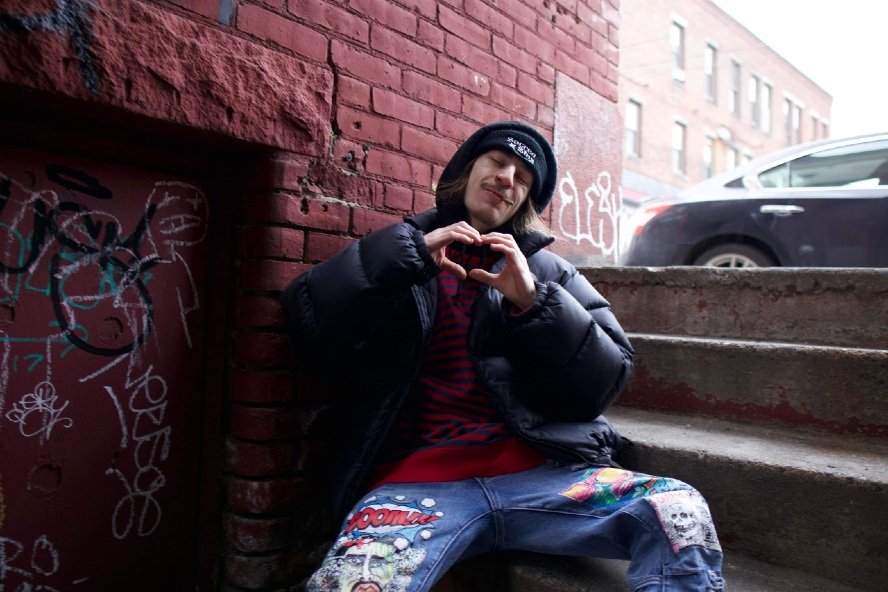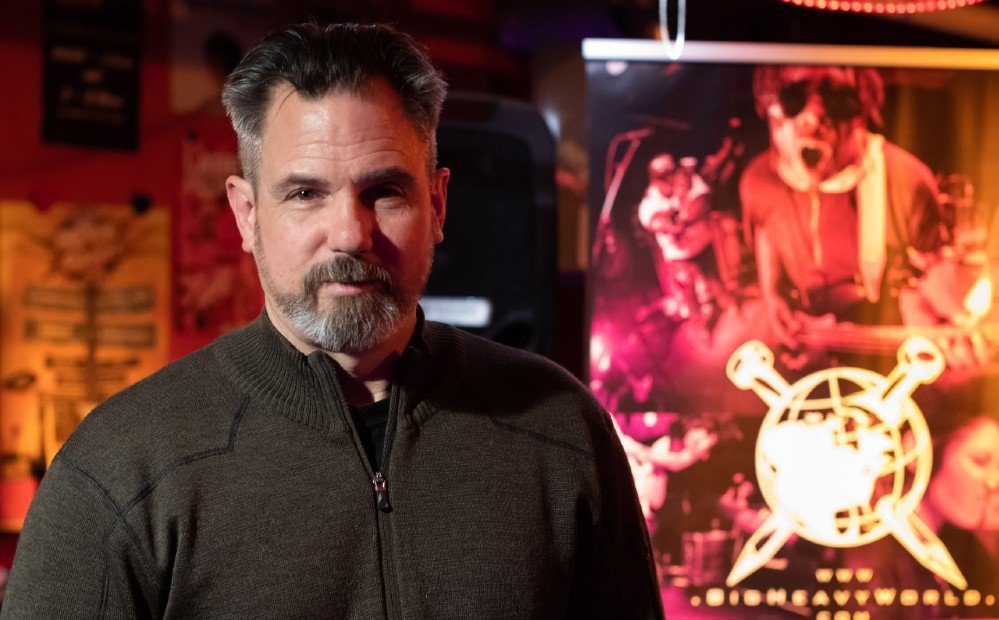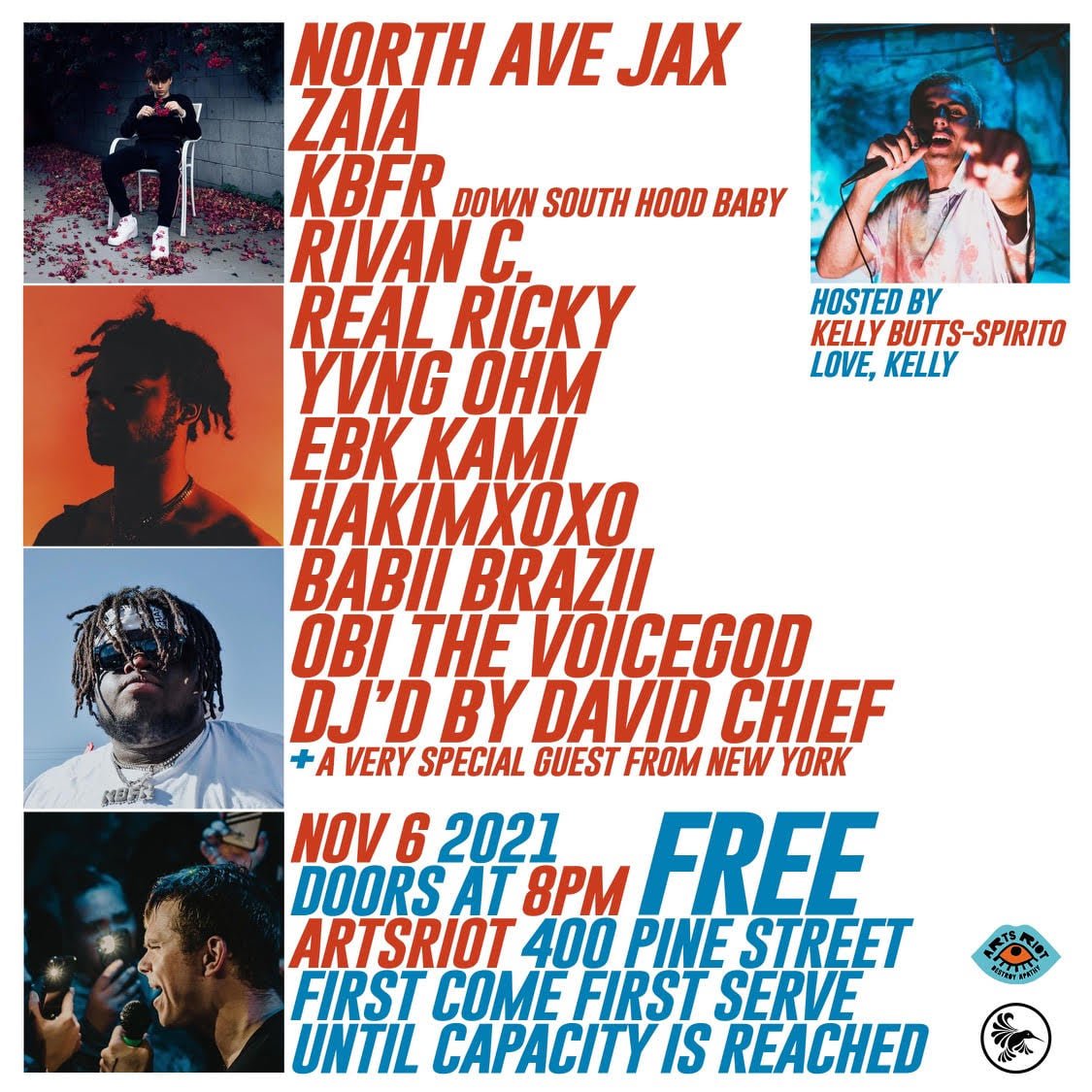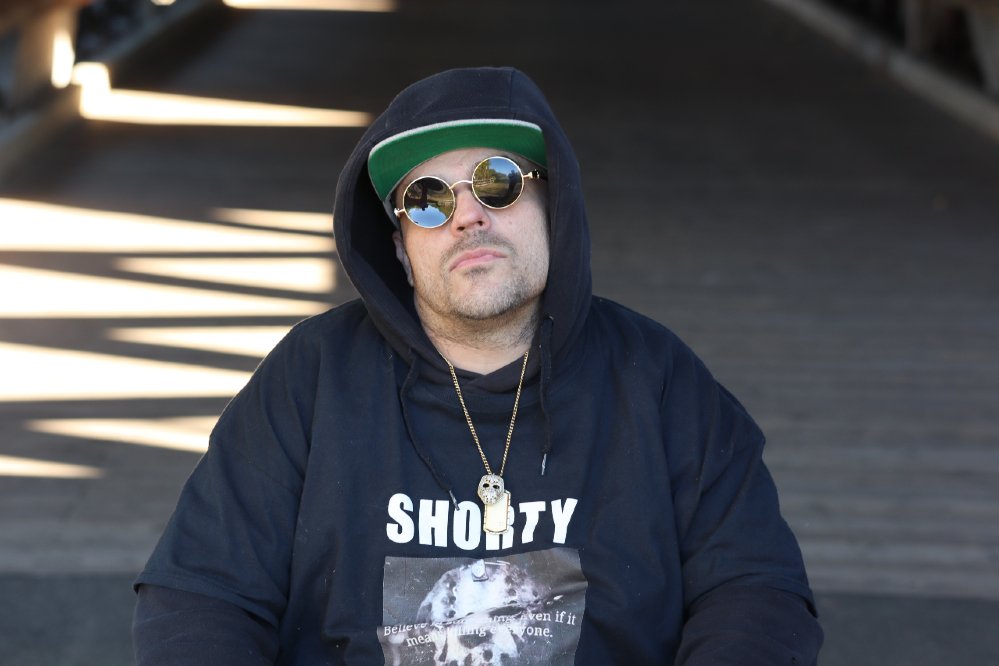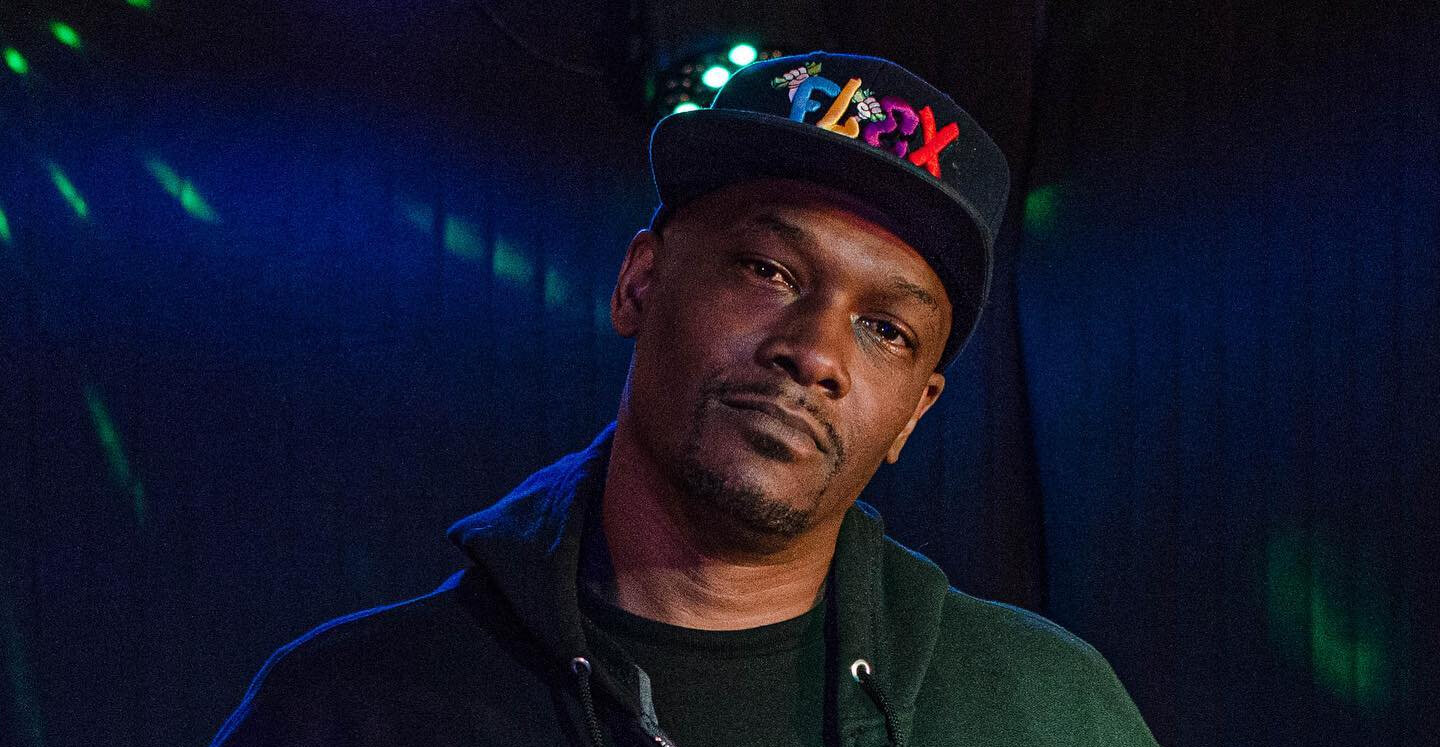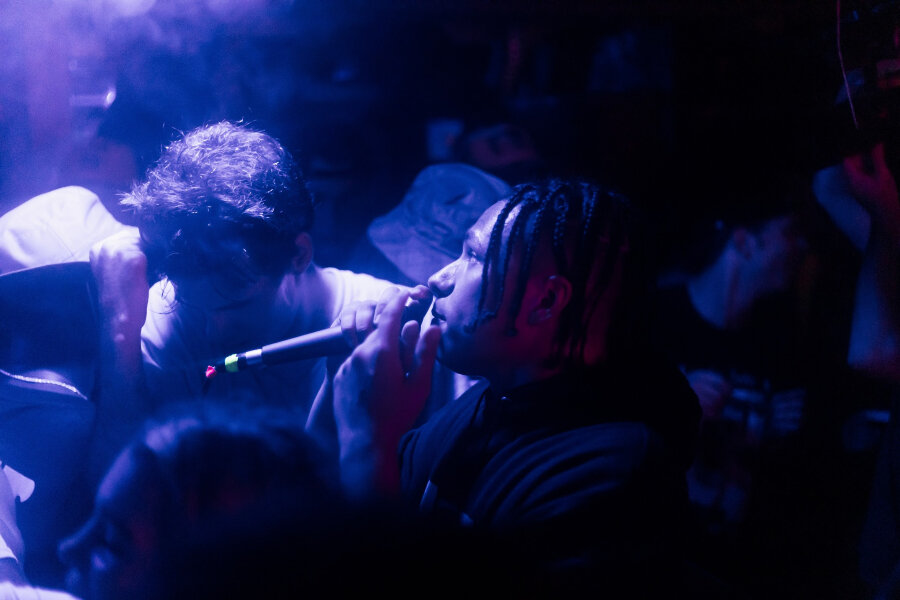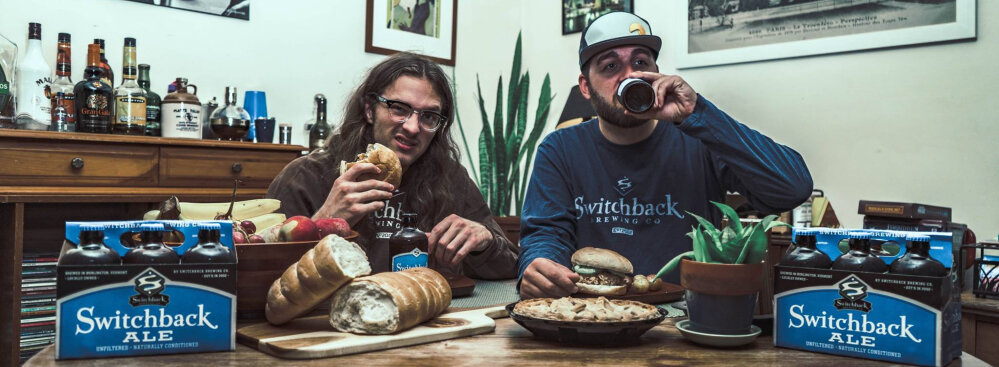In 2022, young producer Caleb Lodish became an undeniable, unavoidable force in the local scene. A hard-working collaborator with an inner fire to make things happen, single after single, he was a one man heat wave all year long. This year, he’s aiming even bigger. With his new LP, I Expect Nothing In Return, he’s delivered a monumental tribute to Burlington’s new wave, a snapshot of this moment in time. In that respect, he’s just like dynamic new artists he’s working with, because we ain’t seen nothing yet.
VTHH: Since I first heard your stuff on Soundcloud, I've always been impressed by your ears. You have a great sense of both building compositions, and how to mix those elements just right. Were either of those natural talents for you, or was it a long road getting that sound to where you wanted to hear it?
It was definitely a long road getting to that sound, I feel like only in the past year my sound evolved to the point where I'm consistently happy with the quality of sound. I played saxophone in my school's band so I had a little bit of musical background, but it was definitely a long road to where I am now.
VTHH: Who are your biggest influences & idols as great producers?
My biggest influences right now in terms of producers is all the members in the New Focus collective. New Focus is a collective of a bunch of producers and artists from VT and NY. Being part of this collective and working with these amazing prods and artists is incredible. They always give me influence on something I can do, or improve on.
In terms of artist influence, I’ve been working with some of the members of 99 lately and they’ve been inspiring me to just try a whole bunch of new styles I’ve previously never thought of doing.
Also I take a lot of influence from hyperpopdaily, I just love how they just post whatever, and how they were able to build up a cult fanbase and do whatever they want and they are still respected in the community to an extent.
VTHH: What were you using when you first started making beats -- and what is your workflow like now?
I was using GarageBand and Looperman loops for about my first 6 months of producing, and it sounded just terrible. I got logic shortly after those 6 months and then I just started learning as much as I could. My workflow now is interesting. I try to make 2-3 beats a day, somedays I can't make any, and then some days I make like 8. The most I've done in a day was 16 I think.
VTHH: What kind of zone are you in that makes a 16 beat day possible? That's insane.
The day I made 16 beats was the day before the Destroy Lonely music video shoot. So I had to make him an entire exclusive pack that I could hand to him on a flashdrive. I worked non-stop until I could not function and my eyes hurt from looking at my computer. I was determined to get a placement.
I’ve worked with bigsmokechapo, and so has Lonely, so I figured it would be easy to get him to listen to the beats. I handed Lone the drive and now I am awaiting anything back
VTHH: Did you have any mentors along the way or are you mostly a self-taught monster?
I would say that some parts of my production are definitely self-taught, I learned how to use Logic all by myself, and I learned Pro Tools all by myself. I was briefly taught how to kind of mix vocals when I went to NYU for a month-long pre-college program, however, I did learn a lot through Teddy Baker for sure. Also through my time at the Burlington Technical Center, I had an amazing teacher, Jason Raymond, and he taught me so so much. I definitely would not be where I am right now without Jason.
VTHH: Did you make a lot of connections through Burlington Technical Center, too? It seems like most of the BTV new wave of artists have been in that studio space at one point or another.
I’ve made so, so, so many connections through BTC. I met Hakim through BTC, I’ve met Brazii, Ranch God and numerous other people. It’s an amazing space where young artists can be creative and explore the world of music.
VTHH: Are you mostly building your beats from the ground up with software instruments? Everything sounds very sculpted & tailored, very custom fit.
I either make the loop from a MIDI, (I’m still learning music theory so chord structure is hard for me) and then build drums around it, or I get a sample from one of my producer friends and then either change something up, or add something and then layer drums onto it.
I usually use VSTs my go to right now is Zenology, Hive, and serum. I kinda have a formula for my drums but I love to experiment with different genres and styles. Some days I’ll make an R&B beat, move to a Ken Carson type beat, and then make an 80s inspired funk beat or something.
VTHH: What can listeners expect from you in the second half of 2023?
Probably nothing. It took me like 6-8 months to make that album and I was so exhausted the month leading up to release, it was so stressful. So I'm taking a luh break right now. Maybe another single in the winter or fall I have no idea. But there is a song with HANKNATIVE dropping tonight and that one's going to be cool. I also have another one with him dropping under 99 Neighbors soon, so be on the lookout for that. I guess you won't get much more songs under my name anytime soon, but there are going to be a lot of songs I've worked on dropping in the later half of this year.
VTHH: Over the past year, you've emerged as a human hub for the new wave of 802 hip hop. Was that a deliberate strategy or a natural evolution for you?
I've been plotting on becoming a monopoly for production in Vermont for about a year and a half, and it's finally coming to fruition. I've worked with almost everyone, and my beats are everywhere. I'd like to think i have a good system with sending beats out, I usually send 14 beats out every week to a lot of people. Cast big net catch more fish. It's absolutely been a deliberate strategy.
VTHH: Do you have plans to expand your reach beyond the 802 next year?
I’m going to college for music business at Hofstra in the fall, so I plan to network and make music with as many people as I can.

